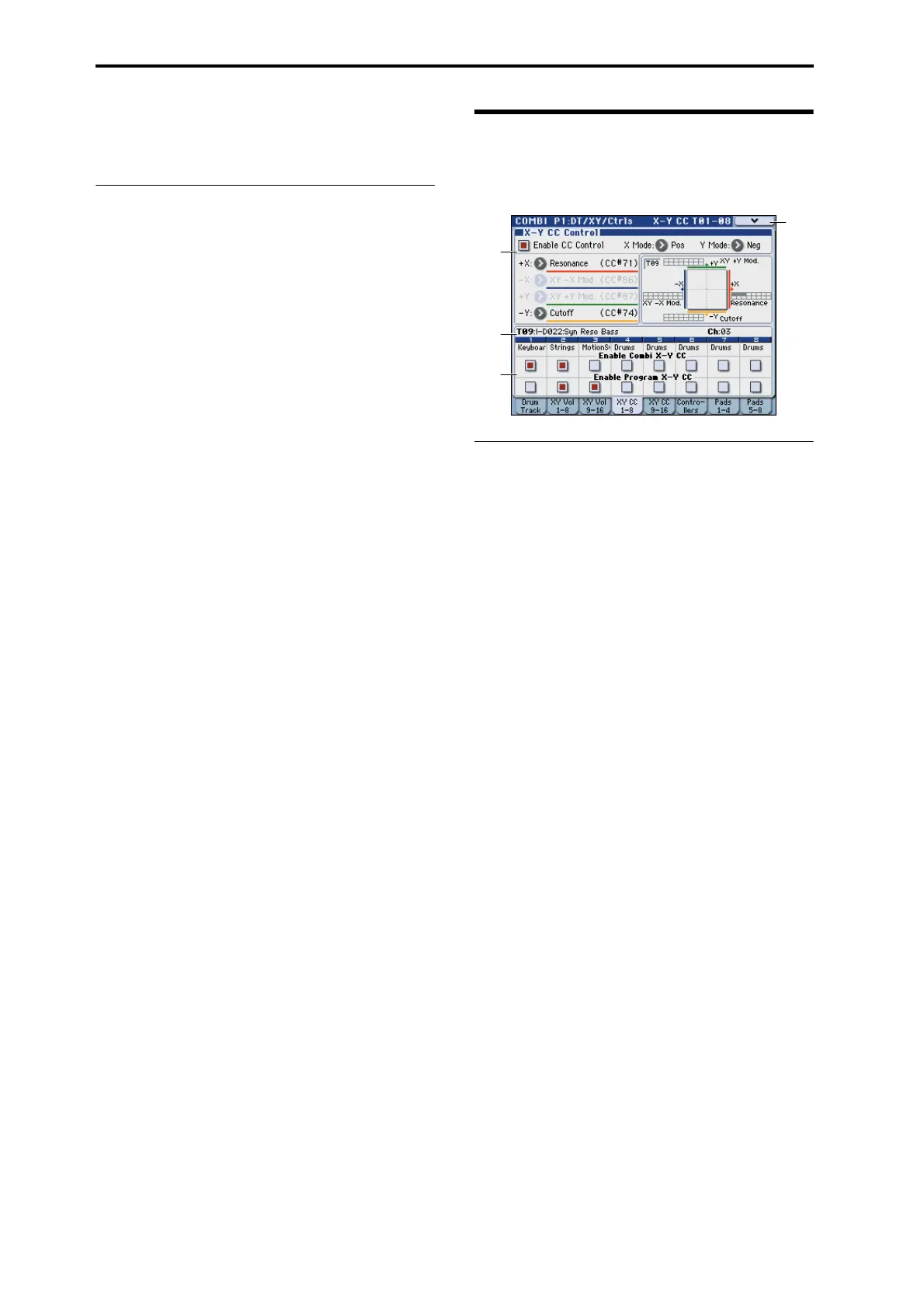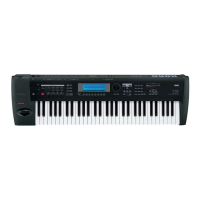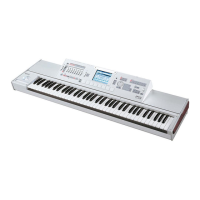Combination mode
142
Timbre 2...8, 9...16
The parameters for Timbres 2–8 and 9–16 are identical to
those for Timbre 01, as described above.
▼1–2(3): Menu Command
• 0: Write Combination ☞p.185
• 1: Panel–SW Solo Mode On ☞p.106
• 2: Exclusive Solo ☞p.107
• 3: Copy from Program ☞p.185
• 4: Copy X–Y Motion ☞p.107
For more information, please see “Combination: Menu
Command” on page 185.
1–4: X–Y CC T01–08,
1–5: X–Y CC T09–16
(X–Y CC Control T01–08, T09–16)
1–4(5)a: X–Y CC Control
X–Y CC control (X–Y CC) uses X–Y mode (or X–Y motion) to
control the timbre programs and effects.
Each of the four directions of the X–Y can send a different
MIDI CC, including left (–X), right (+X), up (+Y), and down
(–Y). You can choose between several different patterns
combining these four directions by using the X Mode and Y
Mode parameters.
The X–Y CCs are also sent to all Global Channel Timbres.
These may modulate Program parameters, like any other
MIDI CCs, depending on the settings within each individual
Program.
Finally, you can optionally send these CCs out to external
MIDI instruments. By using the Global parameter X–Y
MIDI Out with X–Y CC Control, you can turn the X–Y CC
control MIDI output on/off. By default, X–Y CC control
output is not transmitted.
X–Y control operation of programs and combina-
tions
Volume and CC control of each timbre program in
Combination mode can be performed according to the X–Y
control settings made in Program mode. You can disable the
Program X–Y Volume and CC control separately for each
timbre, if desired.
Program X–Y CCs affect only their own Program, even if
other Timbres are set to the same MIDI channel.
There is also a separate Combi-wide X–Y control, with its
own X–Y Volume and CC control settings. Combi X–Y CCs
affect all Timbres set to the Global channel. As with the
Program X–Y, you can disable the Combi X–Y and CC
control separately for each timbre.
X–Y control and MIDI
The X–Y control features interact with MIDI in two different
ways: through the X–Y Volume, and through the X–Y CC
Control.
The X–Y mode sends and receives two MIDI controllers: one
for the X axis, and the other for the Y axis. In Global mode,
you can assign these to any MIDI CC numbers you like. The
defaults are CC#118 for the X axis, and CC#119 for the Y
axis.
The X–Y mode (or X–Y motion) and its CCs control the X–Y
position.
In contrast, X–Y CC control normally controls only the
program’s sound and effects, but the generated MIDI
1–4a
1–4b
1–4c
1–4
Menu
